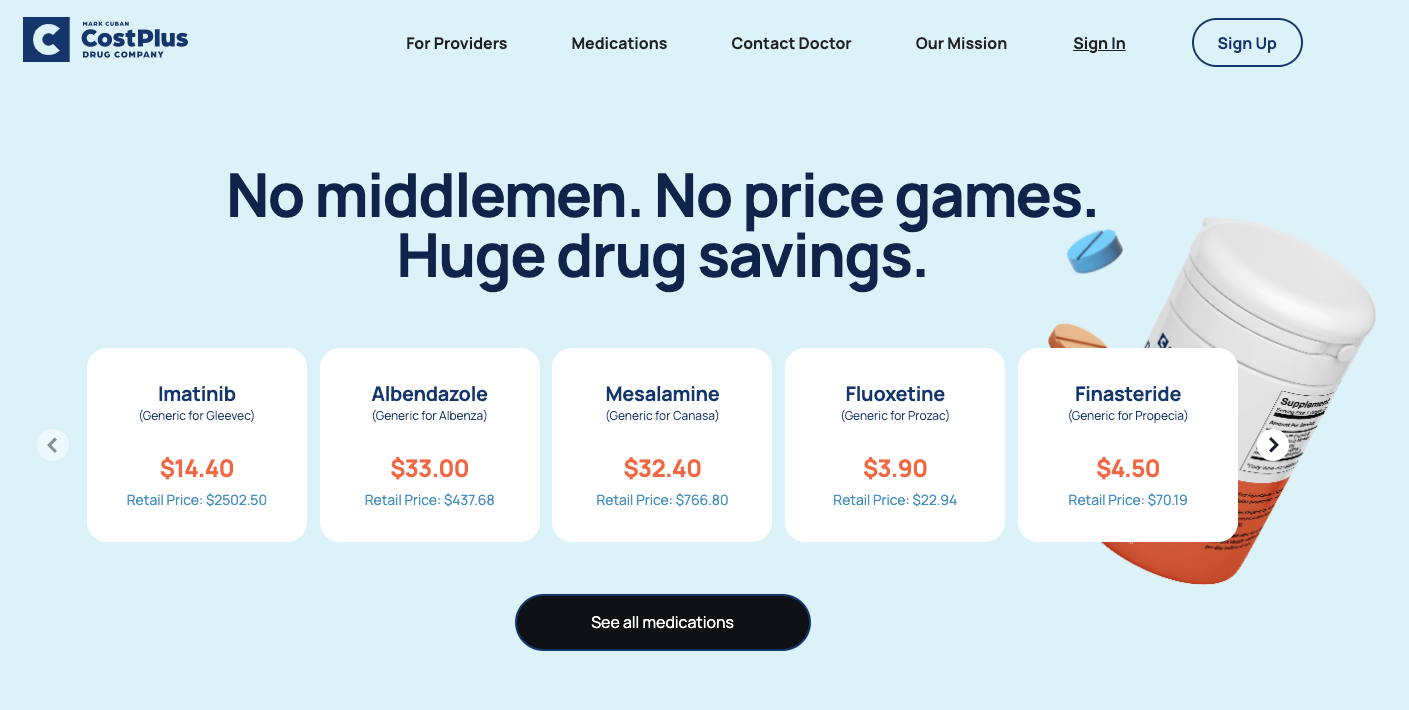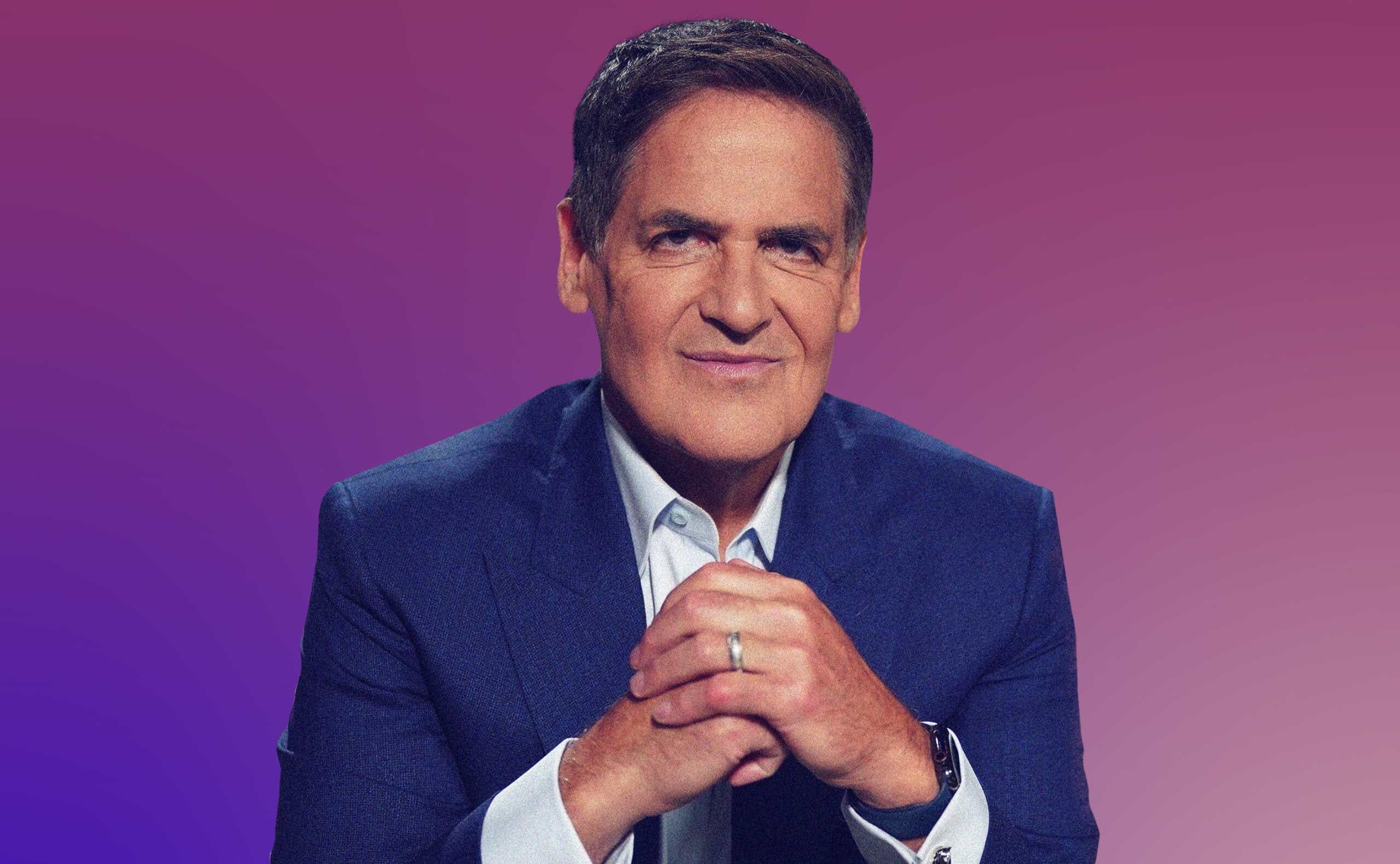You know Mark Cuban. Whether it’s as the owner of the Dallas Mavericks or a judge through 13 seasons of Shark Tank, the billionaire is part of the zeitgeist. But recently, the 64-year-old has been meditating on his legacy, he tells KCM.
And it turns out that what he wants to be remembered for isn’t the tech-bubble deal that made him a billionaire, or his role as the straight-shooting investor on a hit reality show. It’s for a company he co-founded just this year, Mark Cuban Cost Plus Drugs.
“There’s only one company I’ve ever put my name on,” he says. “And the reason I did that is first and foremost to let people know that I’m all in on changing the pharmaceutical industry.”
When Cost Plus launched earlier this year, it was to significant fanfare — partly because Cuban has a good sense of his celebrity and knows how to leverage it. But it’s also because Americans are getting trampled by the rising price of drugs and are desperate for a solution. According to one study, the median cost for a year’s supply of a new drug just entering the market rose from $2,115 in 2008 to $180,000 in 2021 — with the biggest increases seen for cancer drugs and treatments for rare diseases. The price of insulin alone has shot up 600 percent over the past 20 years, and with scandals like the “Pharma bro” saga dominating headlines, there’s a recognition that something needs to be done.
What exactly that "something" is, is up for debate. But what’s clear is that to tackle a big problem created by the $365 billion prescription-drug market, you need a big idea. And Cuban believes he’s onto something that could “disrupt” the sector.

The entrepreneur co-founded Cost Plus after getting a cold email about four years ago from Alex Oshmyansky, MD — a doctor with a big idea. What Oshmyansky wanted to do was cut out the middleman, or pharmacy benefit managers (PBMs), who negotiate with drug manufacturers on behalf of insurers or large employers but are frequently criticized for raising the prices of medications to secure their own profits.
Cost Plus goes directly to manufacturers to get drugs at wholesale prices, then sells those drugs at a 15 percent markup, with a $3 pharmacy handling fee and $5 for shipping — and lists that price (which is the same whether or not you have insurance) on its website. This radically transparent pricing model has allowed the company to sell hundreds of generic drugs, oftentimes for far cheaper than their competitors.
Take Droxidopa, for instance. The drug is used to treat lightheadedness in people with Parkinson’s or those with severe forms of paralysis. A friend of Cuban’s from college, who was paralyzed from the neck down in a car crash while they were seniors, currently pays $9,000 for a three-month supply of the drug. He recently reached out to the billionaire to see if Cost Plus offered a cheaper alternative.
“We did our research, found the manufacturer, explained what was going on, and now we’re going to be offering Droxidopa on our site,” Cuban says, slashing the price from $9,000 to $61. “That’s how crazy this industry is.”
There are plenty of similar examples: The leukemia drug Imatinib has a retail price of more than $2,500 but is being sold by Cost Plus for just $14.40. They’re also selling a generic diabetes drug Pioglitazone HCL, which typically goes for between $70 and $90, for $6.60. And the list goes on.
Earlier this year, a group of Harvard Medical School researchers scrutinized the business model and determined that it not only holds up, but that if it were to be adopted by Medicare, the federal agency could save billions.
What’s next for Cost Plus Drugs?
When the company launched in January, it offered about 100 drugs. Now it has more than 800 and counting, and is serving more than a million consumers.
“The growth is probably three times what we ever expected,” Cuban says.
But if there’s one thing Cost Plus has been criticized for, it’s that it doesn’t yet offer any brand-name drugs. Experts see this as a major hurdle for the start-up, because there’s little incentive for drugmakers to give the company a rebate on their patented products. But Cuban says he's in talks with some big pharma companies and seems optimistic they’ll be able to start offering brand-name medications in the near future.
He views Cost Plus’ new deal with Roche Diabetes Care as a first step: In its first pharma partnership, Cost Plus will sell the company’s Accu-Chek products, a leading brand in blood glucose monitors, testing strips, and lancets, for less than the average retail price.
Cuban says there’s a lot more to come, too. Just last week, Cost Plus inked its first deal with an insurance provider, Capital Blue Cross, helping its 1 million members save on their prescriptions. (The company still doesn't accept claims from other providers.) And they’re currently building a 22,000-square foot manufacturing plant in Dallas, which he hopes will be up and running before the end of the year making their own injectable medications.
What’s next for Mark Cuban?
Cuban says he’s spending “99.99 percent of [his] time” on building his company. That may be a bit of an overstatement. The NBA season is just around the corner and there’s no way Cuban won’t be courtside watching the Mavs and Luka Doncic — the star who last year signed a $207 million extension. And contrary to prior reports, Cuban tells us he’s signed on for at least one more season of Shark Tank.
But he wants people to know that when it comes to Cost Plus and its goal of making life-saving drugs more accessible to Americans, he’s all in — and Cuban is a true believer.
“People having to choose between medication, housing, and food — that’s just not right,” he says. “That’s why this is so important to me.”
He adds, “This is what I want to be remembered for.”









